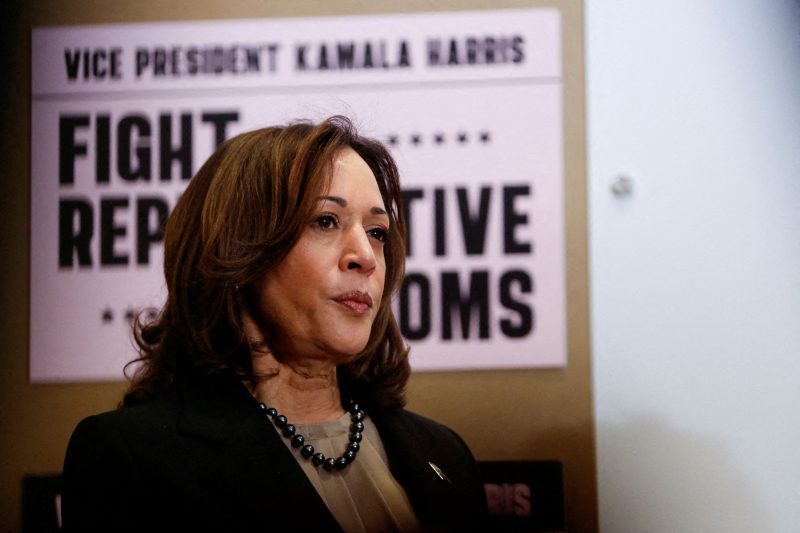
Harris Fuels Momentum in Turning Attention to Abortion Rights During Election
The pivot of the political dialogue in recent times has been around the significant recentering of election campaigns around the topic of abortion rights. This reshaping of the narrative has been substantially driven by Vice President Kamala Harris. As an influential advocate for women’s rights, Harris has strategically positioned the issue of abortion rights at the center of the electoral discourse, potentially reinvigorating a political landscape marked by divisive topics.
Harris’ approach stands out in the current political landscape, serving as a focal point for women’s rights, especially in the wake of restrictive abortion laws in many states across the US. The Vice President identifies the right to choose as a cornerstone of democracy and personal freedoms, a stance that creates a ripple effect and shapes many other related policies and reforms.
Illustrating her commitment, Harris has repeatedly spoken to the public and the press about the issue, tailored her appointments and policy objectives to reflect her position, and fostered a network of policymakers aligned with her stance. In doing so, she is not only voicing a feminist perspective but seeking to mobilize a broader coalition that spans across gender, race, and class lines to support these rights.
Her endeavors are positioned in response to the rapid enacting of anti-abortion laws in multiple states, most notably Texas, which has received widespread criticism for significantly limiting women’s access to abortion services. It is amid this backdrop that Harris’ rallying around the protection of abortion rights has taken the center stage, fueling the political dynamic and shaping the narrative in a meaningful yet contentious way.
The Vice President’s position on this issue is not merely rhetoric. Harris has followed her talk with tangible actions, making sure her stance is translated into reality. She works closely with Congress to safeguard reproductive rights through legislation. For Harris, the aim is to secure these rights on a federal level, safeguarding them from the fluctuations of state-level politics.
While Harris’ primary focus has been on building a unified front committed to bolstering abortion rights from a federal standpoint, she also acknowledges the necessity to tackle this issue at the state-level. She emphasizes the role of elected officials in state governments, pushing for the election of individuals willing to fight for and maintain the said rights.
Moreover, Harris is also advocating for an open discussion about the role of the judiciary in maintaining or reforming the status quo of these rights. The Supreme Court will soon review a Mississippi law in a case that has the potential to reshape decades of established legal precedent on abortion rights, setting the stage for a
